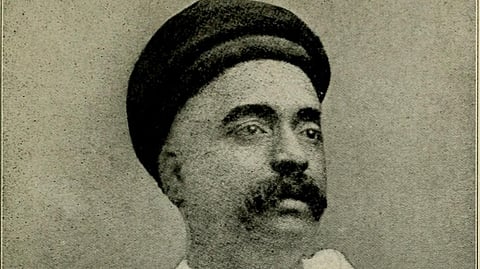

Bal Gangadhar Tilak was a radical, who was a central figure of the Indian nationalist movement in the pre-Gandhi era. He gave the call, “Swaraj is our birthright and we shall have it”, and urged the boycott of foreign goods as a hit on British imperialism. Some among his essays published in Kesari, a Marathi publication founded by him in 1881, on topics ranging from the Indian National Congress and the economy to nationalism, besides his views on sedition - a topic that's still controversial and in debate today - are part of a new book titled Kesari (Penguin).
The essays selected in the book, which also includes some unknown facts about Tilak’s political life, has been translated by Nadeem Khan and Yashodhan Parande. The book opens up crucial moments of Indian history and the ideas of Tilak. Excerpts from a conversation with the editors.
Tilak advocated aggressive nationalism at a time of self-determination. What do you think would have been his stand on militant Hindutva more than 70 years after independence?
Although a social and religious conservative, Tilak was never a proponent of militant Hindutva. As a matter of fact, much of his energy was expended against the moderates within the Congress in politics and the liberals among the Hindus in society. He did believe that the British administration played favourites with the Muslims for their political gains, but he did not hold any personal animus against the community or its individual members. There are forces today that play the aggressive Hindutva card not because of any concern for religion or society, but for political mileage and personal gains. Tilak is never known to have utilised the ‘Hindu Card’ for gaining personal or political advantage.
What are the surprises and insights that this book will give a reader interested in Marathi politics or those who study Hindutva?
Tilak did not play politics along communal lines. He had his understanding of both religious and social forces at work in the society of his times. He had his differences of opinion with others, but these differences were not petty or personal. He used the services of Jinnah to defend him in the sedition case. He held Dadabhai Naoroji as an ideal for emulation by Indian politicians.
At the same time, he had bitter differences of opinion with liberals of his own time like Gopal Krishna Gokhale and Gopal Ganesh Agarkar. However, the touching eulogies he wrote on these two clearly reflect his deep personal regard for them despite strong ideological differences.
What do you think the chapter on sedition in the book can add to today’s understanding of sedition in India’s national life or in the way we understand political dissent?
In all his trials for sedition, Tilak consistently defended his conduct and his writing, arguing that criticism of the government, no matter how strongly expressed, could not be regarded as seditious as long as it did not incite violence or the commission of offence. He held that the press was entitled to criticise government policies and actions that it considered erroneous or harmful; indeed it was the duty of the press to do so even at the risk of incurring displeasure of the powers that be at the time.
His consistent stand was that the legal provision for sedition could not be validly used to stifle such criticism or dissent. It is noteworthy that the British era provision in the Indian Penal Code viz S. 124A of the IPC had continued to remain in our statute books till its recent replacement by Section 154 of the Bharatiya Nyay Samhita.
Although the word sedition has not been used in the new provision, the language of the provision is such that almost all the ingredients of the old provision seem to have been maintained. Indeed, concerns have been expressed in some quarters that the new provision may be wider and more open ended in its scope than its predecessor, making it vulnerable to abuse. Tilak's robust and forceful arguments about what can and what cannot constitute sedition, therefore, clearly resonate with our contemporary scene in which we do witness attempts on the part of the authorities to invoke the offence of sedition against what many may regard as valid albeit extreme expressions of dissent.